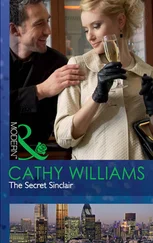I set the telephone down on the table and fingered the tarnished brass clasp of my acquisition. As ancient as my mother’s virtue, that valise, and just as lost to history: cracked and dusty, bent in all the wrong places. A faint scent of musty leather crept up from its creases. There was no label of any kind.
I don’t mean to shock you, but I’ve never considered myself an especially shy person, now or then. And yet I couldn’t quite bring myself to undo that clasp and open the suitcase in the middle of my ramshackle Greenwich Village fifth-floor apartment. There was something odd and sacred about it, something inviolable in all that mustiness. (Quite unlike my mother’s virtue, in that respect.)
My hand fell away. I looked back at the telephone. “I think it’s time to call Great-aunt Julie.”
“VIOLET SCHUYLER , DID YOU SAY?”
“Yes, Aunt Julie. Violet Schuyler. Does she exist? Do you know her?”
“Well, well.” The line went quiet. I imagined her pacing to the limit of the telephone cord, like a horse on a gilded Park Avenue picket line. I imagined her pristine sixty-two-year-old face, her well-preserved brow making the ultimate sacrifice to this unexpected Saturday-morning conundrum.
“Aunt Julie? Are you there?”
“You’re certain the name was Violet? Foreign handwriting can be so atrocious.”
“It’s definitely Violet. Doctor Paul concurs.”
“Who’s Doctor Paul?”
“We’ll get to him later. Let’s talk about Violet. Obviously you know the name.”
She exhaled with drama, as if collapsing on the sofa. I heard the scratching of her cigarette lighter. Must be serious, then.
“Yes, I know the name.”
“And?”
A long breath against the mouth of the receiver. “Darling, she was my sister. My older sister, Violet. A scientist. She murdered her husband in Berlin in 1914 and ran off with her lover, and nobody’s heard from her since.”
The Englishman walks through the door of Violet’s life in the middle of an ordinary May afternoon, smelling of leather and outdoors.
She’s not expecting him. In that hour, Berlin is crowded with light, incandescent with sunshine and possibility, but Violet has banished brightness within the thick redbrick walls of her basement laboratory. She closes the door and lowers herself into a wooden chair in the center of the room, where she stares without moving at the heavy blackness surrounding her.
In her blindness, Violet’s other senses rise up with primeval sharpness. She counts the careful beats of her heart, sixty-two to the minute; she hears the click of footsteps down the linoleum hallway outside her room. The sterile scents of the laboratory fill her nostrils: cleaning solutions and chemicals, paper and pencil lead. Deeper still, she feels the weight of the furniture around her, interrupting the empty space. The chairs, the table, the radioactive apparatus she is about to employ. The door in the corner, from which she can just begin to detect a few thin lines of light stealing past the cracks.
As she sits and waits, as her pupils dilate by tiny fractions of degrees, the stolen light from the doorway finds the walls and the furniture, and the intricate charcoal shadow of the apparatus atop the table. Violet removes a watch from her pocket and consults the luminous dial. She has been sitting in her shapeless void for ten minutes.
Ten more minutes left.
Violet replaces her watch and resists the urge to rise and check the apparatus. She set it up with her own hands; she has already inspected each detail; she has already performed this experiment countless times. What possible surprise could it hold?
But a trace of unease seems to have stolen into the room with the light from outside the door. It pierces Violet’s calm preparation and winds around her chest like the thread behind a needle. She counts her pulse again: sixty-nine beats to the minute.
What an extraordinary anomaly.
She has never experienced this sensation before an experiment. Her nerves are cool and precise; her nerves are the very reason she was first delegated to perform this particular duty. She might go further and say that her nerves had brought her to this point in her life: her work, her unconventional marriage, her existence here in Berlin in this incandescent May of 1914, in a basement laboratory at the Kaiser Wilhelm Institut, waiting for her pupils to dilate to the necessary degree before she can begin an experiment at the frontier of atomic physics.
But she can’t deny the existence of this sensation that tightens about her heart. It is real, and it is quantifiable: seven additional beats of her heart in every minute.
A double knock strikes the door.
“Come in,” Violet says.
She closes her eyes as the door opens, because she doesn’t want the additional light to interrupt the adjustment of her pupils. Footsteps beat against the linoleum; the door clicks shut. Her husband, probably, come to check on her progress. To stand over her and ensure that she gets nothing wrong. That she misses nothing.
But in the split second before he speaks, Violet knows this intruder isn’t her husband. These footsteps are too heavy, the leathery air that whirls through the door with him too brash. Her senses recognize his strangeness just before his voice confirms it.
“I hope I’m not disturbing you, Mrs. Grant.”
Violet opens her eyes.
“My name is Richardson, Lionel Richardson. Your husband told me you wouldn’t mind my observing the experiment.”
Your husband told me. Walter sent this stranger to her?
Again, that unsettling sensation in her chest. If only she could see him. His black shape outlines the blacker void around him, obstructing the light from the door without a trace. His voice rumbles from the center of a capacious chest, low and respectful, the syllables clipped by precise British scissors.
I hope I’m not disturbing you.
“Not at all,” Violet says crisply. “Are you a colleague of his?”
“No, no. A former student.” He makes some movement in the darkness, indicating the apparatus. “Used to do these sorts of things myself.”
“Then I need not apologize for the darkness. Would you like to sit?” Her heart is beating even faster now, perhaps seventy-five hard strikes a minute. It must be surprise, that’s all. She’s rarely interrupted in those experiments, which are long and repetitious and generally unworthy of spectators. Her animal brain is simply reacting to the sudden presence of an unknown organism, a possible threat. An unexpected foreign invader who might be anyone or anything, but whose vital and leathery bulk doesn’t belong in the quiet darkness of her laboratory.
“Thank you.” A chair scrapes against the linoleum, as if Lionel Richardson can see in the dark. Or perhaps he simply memorized the location of the furniture in the brief flash of light at his entrance. “Are you nearly ready to begin, Mrs. Grant?”
“Almost.” Violet consults her watch again. “Another three minutes.”
Richardson laughs softly. “I remember it well. No twenty minutes ever passed so strangely. Time seems to stretch out, doesn’t it? A sort of black infinity, disconnected from everything else. All sorts of profound thoughts would pass through one’s brain. Not that I could ever recall them afterward.”
Yes, Violet thinks. That’s it exactly. “You’re here for old times’ sake, then?”
Another laugh. “Something like that. Dr. Grant told me someone else was performing my old duties this very minute, and I couldn’t resist a peek. Do you mind?”
“Not at all.”
Of course she minds. Lionel Richardson seems to take up half the room, as if he’s swallowed up the blackness to leave only his own solid limbs, his broad and rumbling chest. Violet is seized with a burst of annoyance at her husband, who surely should have known better than to send this stranger to swallow up her laboratory while she sits waiting in the darkness, alone and unsuspecting.
Читать дальше












